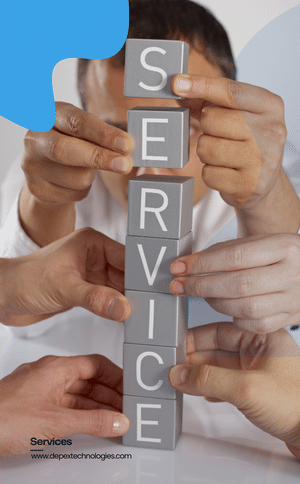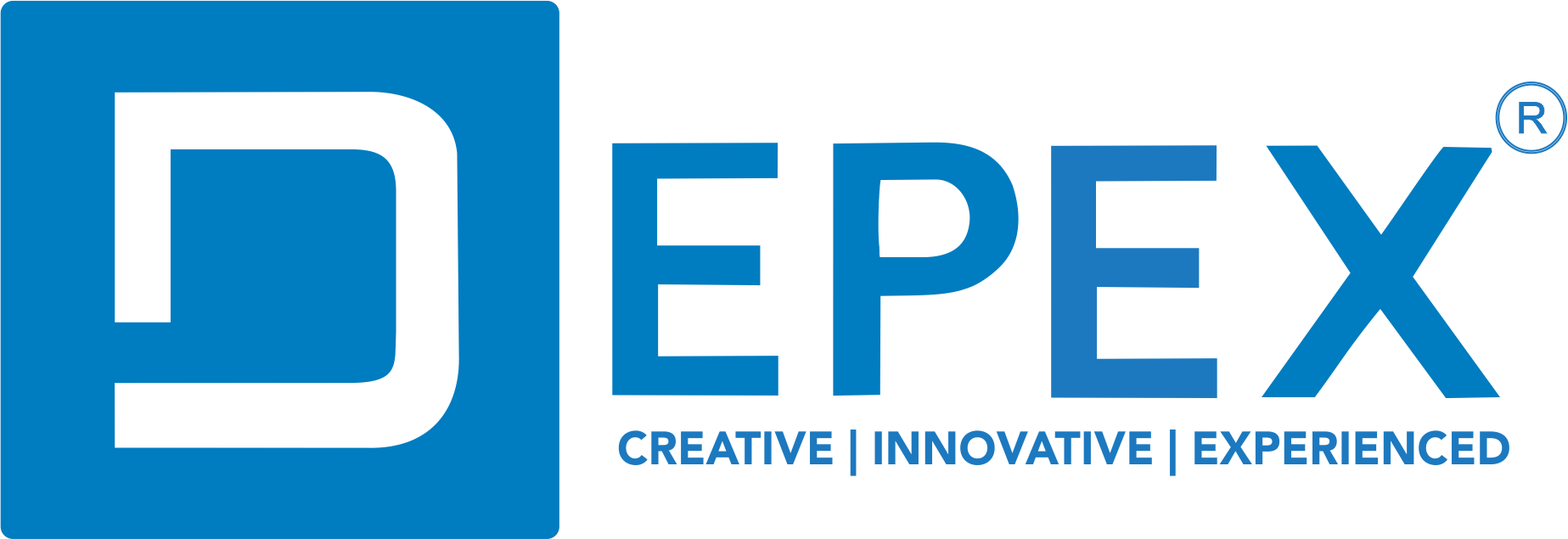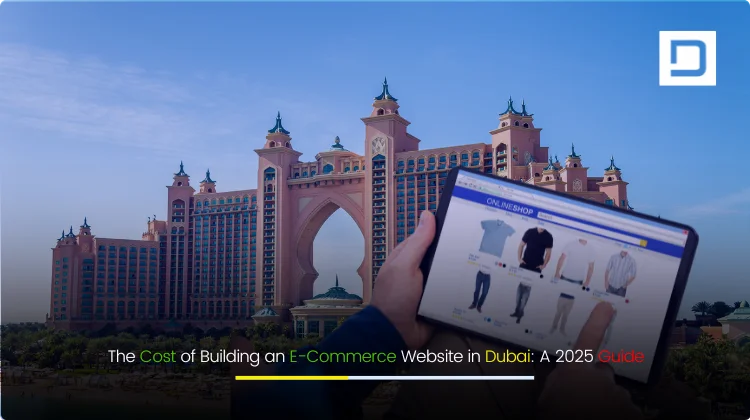The Cost of Building an E-Commerce Website in Dubai: A 2025 Guide
Dubai has become one of the world’s most exciting markets for online business. In 2025, having an e-commerce website in Dubai isn’t just an option—it’s essential for growth. But how much does it really cost to build an e-commerce website in Dubai ? What should you budget for? What are the factors that affect the final price?
If you’re a business owner, entrepreneur, or startup founder in Dubai, this guide will give you clear answers. We’ll break down every cost, explain what matters, and help you avoid common mistakes. Plus, you’ll see why choosing the right development partner is the key to getting real value for your investment.
Why Dubai Is Perfect for E-Commerce in 2025
Before we dive into the numbers, let’s look at why Dubai is such a strong market for e-commerce:
- High Internet Usage: Over 98% of Dubai’s population uses the internet daily.
- Diverse Customers: Dubai’s mix of locals, expats, and tourists creates huge online shopping demand.
- Government Support: Dubai offers business-friendly regulations, digital free zones, and excellent payment systems.
- Booming Market: E-commerce sales in the UAE are expected to reach $12 billion+ by the end of 2025.
If you want your business to reach more customers, grow revenue, and stay competitive in Dubai, an e-commerce website is the best investment you can make.
What Affects the Cost of E-Commerce Website Development in Dubai?
The cost of an e-commerce website can vary a lot. Here are the main factors that affect pricing in Dubai:
1. Website Design & User Experience (UI/UX)
- Custom Design: A design built just for you, reflecting your brand. Higher cost but better results.
- Ready-Made Templates: Faster and cheaper, but less unique.
- Mobile-First Design: Every website must look great on phones and tablets.
2. E-Commerce Platform Choice
- Hosted Solutions: Shopify, Wix, and BigCommerce are easy to use, with monthly fees.
- Open Source: WooCommerce, Magento, and PrestaShop give you more control but may need more technical skills.
- Fully Custom Development: Maximum flexibility for complex projects, higher initial costs.
3. Key Features & Integrations
- Product Catalog: How many products, categories, and options you need.
- Checkout & Payment: Easy, secure, and fast payment options (credit card, PayPal, local gateways like Telr or Payfort).
- Inventory & Order Management: Real-time stock updates, order tracking.
- User Accounts: Registration, profiles, wishlists, order history.
- Multi-Language Support: English and Arabic are a must for Dubai.
4. Content Management System (CMS)
A CMS lets you add and update products, blogs, banners, and pages without coding.
5. Security & Compliance
- SSL Certificate: Essential for safe transactions.
- PCI DSS Compliance: Required for handling credit card data.
- Privacy Laws: Complying with UAE and global data regulations.
6. Hosting & Domain
- Domain Name: Your website address (.com or .ae).
- Web Hosting: Where your website “lives” online.
7. SEO & Speed Optimization
- Search Engine Optimization: Helps your site show up on Google.
- Fast Load Times: Crucial for user experience and SEO.
8. Ongoing Support & Maintenance
- Regular Updates: Keeping your site secure and running smoothly.
- Technical Support: Help when things go wrong.
Cost Breakdown: How Much Does an E-Commerce Website Cost in Dubai (2025)?
Every business is different, so prices can vary. Here’s what you can expect for each level:
1. Basic E-Commerce Website
- Price Range: AED 15,000 – AED 40,000
- Best For: Startups, small retailers, and first-time online sellers.
- Features:
- Ready-made design with some custom tweaks
- Basic product catalog (up to 100 products)
- Standard payment integration
- Mobile-friendly
- Simple SEO setup
2. Professional E-Commerce Website
- Price Range: AED 40,000 – AED 100,000
- Best For: Growing businesses wanting a unique look and advanced features.
- Features:
- Custom design
- Large product catalog
- Multi-language and multi-currency support
- Local and global payment gateway integration
- Better search, filtering, and user experience
- SEO and marketing tools
- Advanced reporting and analytics
3. Enterprise E-Commerce Website
- Price Range: AED 100,000 – AED 250,000+
- Best For: Large brands, multi-vendor marketplaces, and companies with complex needs.
- Features:
- Fully custom design and branding
- Bespoke features (marketplace, auctions, B2B/B2C modules)
- Integration with ERP, CRM, and logistics
- AI personalization, chatbots, and automation
- High-level security, backups, and scalability
What’s Included in E-Commerce Website Costs?
To understand your investment, let’s break down typical expenses:
Design & Development
The largest part of your budget. Covers everything from planning, design, coding, and integrations.
Domain & Hosting
- Domain Name: AED 50 – AED 300/year
- Hosting: AED 1,000 – AED 10,000/year (shared, cloud, or dedicated)
SSL Certificate
- Cost: AED 300 – AED 1,200/year (sometimes included in hosting)
Payment Gateway Setup
- Setup Fees: AED 0 – AED 5,000+
- Transaction Fees: 2% – 3.5% per order (depends on provider)

Ongoing Maintenance
- Cost: AED 5,000 – AED 25,000/year
Covers updates, bug fixes, and security patches.
6. Digital Marketing & SEO (Optional)
- Monthly Cost: AED 2,000 – AED 20,000+
For businesses wanting rapid growth and higher search rankings.
Factors That Can Increase Your E-Commerce Website Cost
- Custom Features: The more custom or unique your requirements, the higher the cost.
- Third-Party Integrations: Connecting your website to ERP, CRM, logistics, or payment solutions can add complexity.
- Multi-Language Sites: Every language version needs design, translation, and testing.
- Content Volume: Adding hundreds or thousands of products requires more time and effort.
- Regulatory Requirements: Strict data protection and payment compliance can require extra technical work.
- High Traffic Hosting: If you expect a lot of visitors, you’ll need faster, more expensive hosting.
Key Steps to Building an E-Commerce Website in Dubai
Knowing the process helps you understand where your money goes:
Discovery & Strategy
- Set goals, research your market, define what makes your business unique.
Planning
- Detailed documentation, site maps, wireframes, and feature lists.
Design
- Creating the look and feel of your site (branding, user flows, visuals).
Development
- Coding the front-end and back-end, integrating payment gateways, setting up security.
Content Entry
- Adding products, descriptions, images, banners, and blogs.
Testing
- Checking for bugs, compatibility, security, and user experience.
Launch
- Making the website live, training your staff, and tracking analytics.
Maintenance
- Ongoing support, feature updates, backups, and monitoring.
Why Is Localization So Important in Dubai?
Dubai is a unique market, and your website should reflect that:
- Multi-Language Support: English and Arabic are essential for reaching all customer segments.
- Payment Preferences: Many customers use cash on delivery, local debit cards, or mobile wallets.
- Shipping Needs: Fast delivery options and integration with local carriers (like Aramex) are expected.
- Cultural Fit: Design and content should match local customs, holidays, and buying seasons.
Which E-Commerce Platform Should You Choose?
Your platform affects both your upfront and long-term costs. Here are the most popular options in Dubai:
Shopify
- Strengths: Easy to use, fast setup, reliable support.
- Weaknesses: Monthly fees, transaction charges, limited customization for advanced needs.
WooCommerce
- Strengths: Flexible, cost-effective for small/medium stores, lots of plugins.
- Weaknesses: Needs some technical skills, can be slow with lots of products.
Magento
- Strengths: Highly customizable, good for large businesses and marketplaces.
- Weaknesses: High development cost, needs expert developers and powerful hosting.
Custom Solution
- Strengths: Tailored for your exact needs, fully branded.
- Weaknesses: Highest initial cost and longer development time.
How to Save Money on E-Commerce Development in Dubai
You don’t have to overspend. Here’s how smart businesses get the best value:
1. Start Small, Grow Fast
Begin with essential features, then add more as your business scales.
2. Use Quality Templates (But Brand Them Well)
Templates save money, but always customize them for a professional look.
3. Choose the Right Partner
Work with an experienced agency (like Depex Technologies) who understands Dubai’s market and can guide you to the right solution.
4. Focus on What Matters Most
Invest in user experience, smooth checkout, security, and mobile performance—these drive sales.
5. Pick the Right Platform
Avoid paying for features you don’t need. Get expert advice to choose the best tech stack for your business.
Sample E-Commerce Project Costs in Dubai
Here are three real-world scenarios to give you a better idea:
Local Boutique
- Platform: Shopify
- Features: 100 products, English/Arabic, basic delivery integration
- Estimated Cost: AED 20,000 – AED 35,000
- Timeline: 4–6 weeks
Electronics Retailer
- Platform: WooCommerce
- Features: Large product catalog, ERP integration, mobile app
- Estimated Cost: AED 80,000 – AED 120,000
- Timeline: 8–12 weeks
Enterprise Marketplace
- Platform: Magento
- Features: Multi-vendor, Arabic/English, advanced analytics
- Estimated Cost: AED 180,000 – AED 300,000
- Timeline: 5–8 months
Smart Questions to Ask Your E-Commerce Agency
- What platform do you recommend for my business size and budget?
- Will my site be mobile-friendly and optimized for Google?
- How do you handle security and data privacy?
- Can you support multiple languages and currencies?
- What ongoing support and updates are included?
- How much will I pay for hosting, maintenance, and upgrades?
Why Cheap E-Commerce Websites Are Risky
Going with the cheapest provider can lead to:
- Bad User Experience: Slow or confusing sites drive away customers.
- Security Problems: Weak security puts your business at risk.
- Hidden Costs: Cheap builds often mean higher maintenance bills later.
- Growth Problems: Basic sites can’t handle growth, forcing expensive upgrades.
Why Choose Depex Technologies for Your Dubai E-Commerce Website?
Depex Technologies is trusted by businesses in Dubai and across the world for top-quality, scalable, and results-driven e-commerce development.
- Local Knowledge: We understand Dubai’s market, language, and payment needs.
- Custom Solutions: We build websites that fit your business, not one-size-fits-all.
- End-to-End Services: From design and development to SEO and hosting, we handle everything.
- Transparent Pricing: You get clear quotes and no hidden costs.
- Future-Proof Technology: Fast, secure, and ready to scale.
Frequently Asked Questions
How long does it take to build an e-commerce website in Dubai?
It depends on your needs. Basic sites take 4–6 weeks. Advanced projects can take several months.
Can I get a fixed price quote?
Yes. After a free consultation, Depex Technologies provides a clear, detailed proposal.
Do I need a business license to sell online in Dubai?
Yes, you’ll need the right e-commerce license from Dubai authorities. We can guide you through the process.
Is my website safe and mobile-friendly?
Absolutely. We build every site to be secure, responsive, and fully optimized for Google.
Conclusion: Invest Wisely in Your Dubai E-Commerce Future
Dubai’s e-commerce market is booming in 2025, but the winners are those who invest smartly. Understanding the true cost of building an e-commerce website in Dubai will help you plan, avoid costly mistakes, and choose the right partner.

Depex Technologies is here to help you every step of the way—from first idea to ongoing growth. Our team will help you get online, reach more customers, and grow your business with a website built for Dubai’s fast-moving digital market.
Ready to launch or upgrade your Dubai e-commerce website? Contact Depex Technologies for your free expert consultation and a custom quote. Let’s build your online success story—together.






